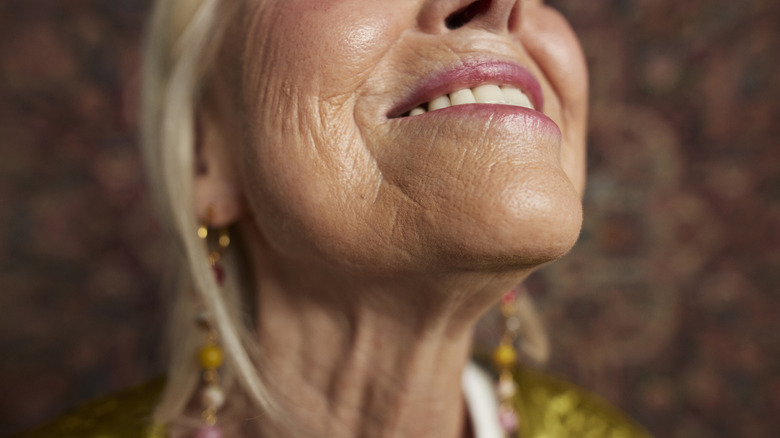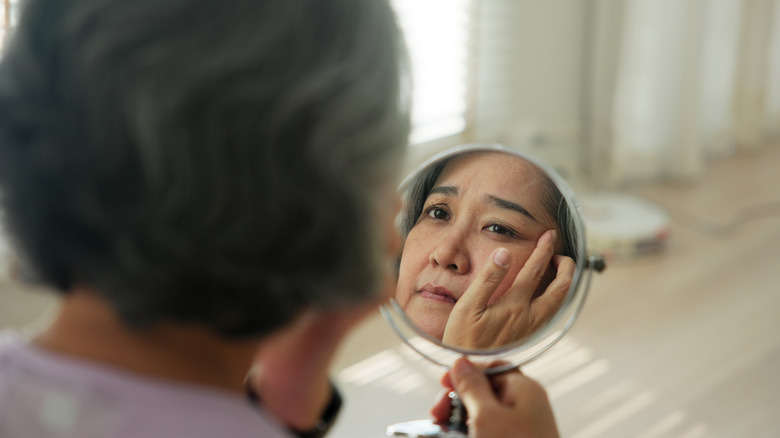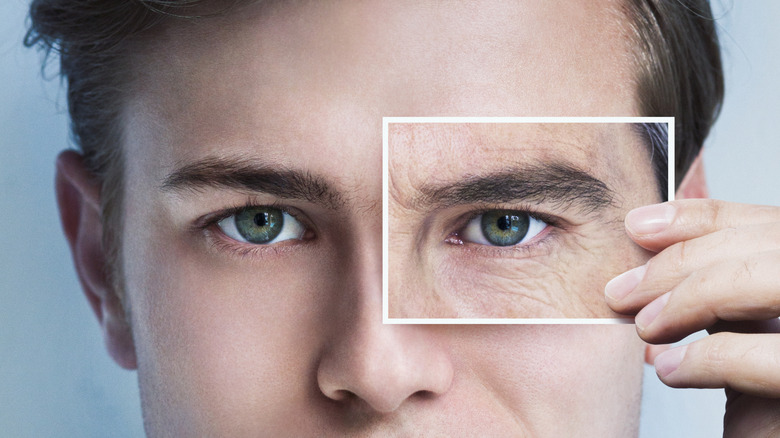The Body Starts Aging Faster When You Reach This Age
Aging is just a part of life, and in an inescapably tragic way imbues our existence with meaning, making our experiences all the more precious for the fact that they won't last forever. But nobody wants to really embrace that reality, as evidenced by the amount of time we all spend trying to combat the effects of getting older.
From anti-aging treatments to the transhumanism movement, nobody wants to accept that we all get old — which is pretty easy to understand simply by considering the basic fact that advancing in years isn't much fun. Aging affects our ability to maintain homeostasis, i.e. our ability to regulate our internal environment effectively. Our minds become less sharp as we age, our skin loses its elasticity, and things just sort of start to hurt more than they once did.
Sadly, we all have to endure the experience of aging and it starts quite early on in our lives. Men stop growing at around 18 years (though some can keep growing into their 20s) while women will typically stop growing around 14 or 15 years of age. After that, it's all downhill, and if you want to be particularly morbid about it, we're all technically dying after we stop growing.
If there's any consolation to be had here, it's that our bodies don't really ramp up the aging process until relatively late in our lives, at least according to scientists who have pinpointed the age at which our bodies start aging faster, and it's a lot later than you might think.
Scientists have discovered the age at which we start aging faster
Humans have a remarkably long lifespan compared to other mammals. The oldest human ever recorded lived to 122 although the average human life expectancy for females and males combined is around 78 and a half years, according to the CDC. But our journey towards death isn't just a straight shot. The rate at which we age ebbs and flows throughout our lifetime, sending us juddering towards our mortality, and now researchers looking at proteins in the human body have seemingly identified the age at which we'll all start the real inexorable slide towards oblivion.
In a 2025 study published in the journal Cell, researchers from the Chinese Academy of Sciences identified the age of 50 as being the point at which we all start aging more rapidly. To get these findings, the team looked at 516 samples from 13 human tissues spanning five decades. The samples came from 76 organ donors between the ages of 14 and 68 all of whom had passed away from accidental traumatic brain injury. Researchers then identified aging-associated proteins and their changes in the samples, which spanned seven areas of the body: cardiovascular, digestive, immune, endocrine , respiratory (lung), integumentary (skin), and musculoskeletal (muscle). By contrasting the protein changes against a database of diseases and associated genes, the team was able to see how certain proteins related to disease increased with age, with the most drastic changes occurring between the ages of 45 and 55.
Just because we age faster at 50 doesn't mean it's game over
After identifying the period during which our bodies seem to start aging more rapidly, the team behind the Cell study decided to test their findings. To do so, they took a protein associated with aging from mice aortas and injected it into younger mice. These younger mice then displayed a variety of problems, from problems with physical performance to decreased grip strength and lower endurance compared to mice who hadn't received the injection. Balance, coordination, and even the vascular system were also affected.
The study thereby provides a view of human aging that takes into account how various tissues and their associated organs age and deteriorate over time, which in turn provides a more general picture of how the human body ages at certain points in its lifespan. While it might seem like a bit of a downer to know when we'll all start careening towards death, the findings will surely help with the development of treatments for aging and age-related diseases.
What's more, just because we start aging quicker at 50 doesn't mean that's the end of the road for us all. In a 2024 study published in Nature, researchers looked at life expectancy data at birth from between 1990 and 2019. The results suggested that while life expectancy had been increasing around the world for decades, the rate of increase had slowed significantly, which might mean we've essentially extended the human lifespan as far as it will go via medical methods such as antibiotics. While some experts maintain that our life expectancy will continue to increase, the 2024 study suggests we're at the best possible place we could be at this stage. All of which means that if we start aging at an accelerated rate at around 50, we've still got an average of 28 and a half years of aging before it's curtains. If that doesn't make you feel any better, try tickling your ear, which might actually slow down aging.


